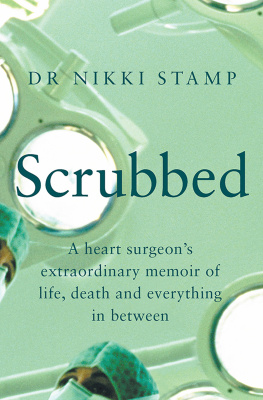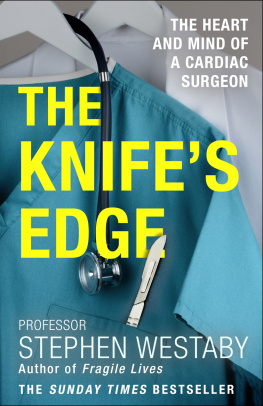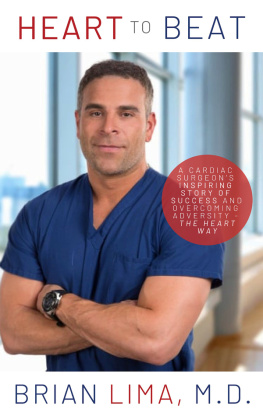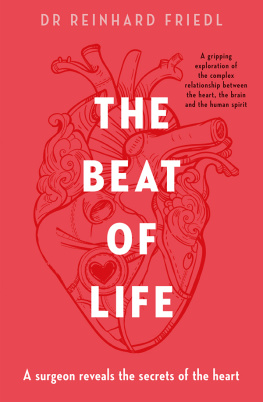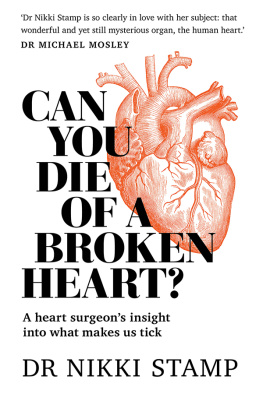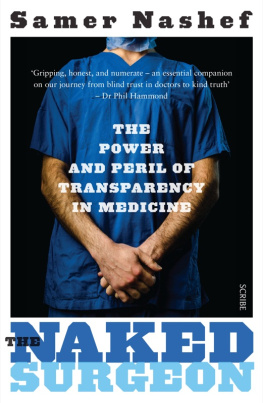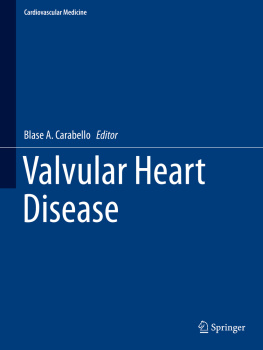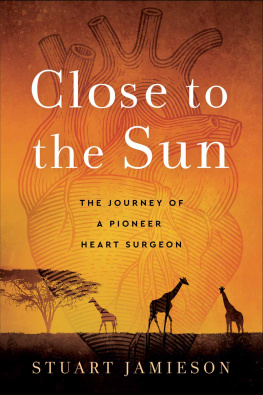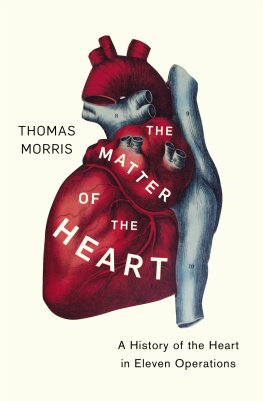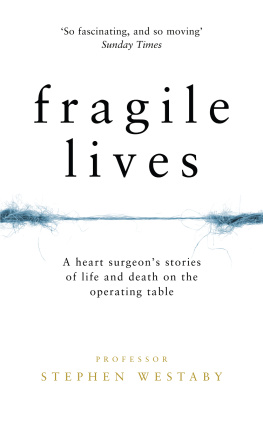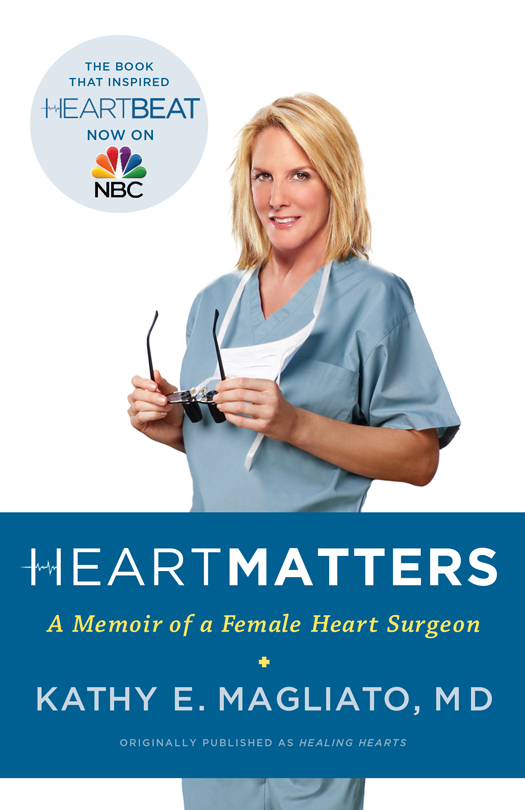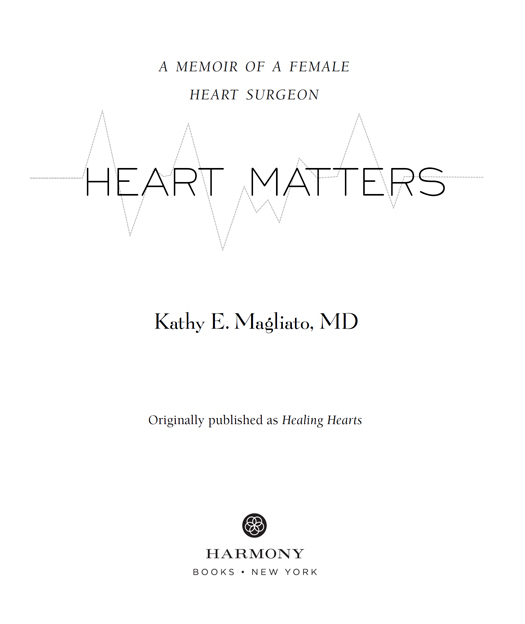To my sons, Gabriel and Nicholas, whose hugs and kisses
at the end of each challenging day heal my heart.
CONTENTS
INTRODUCTION
Love at First Touch
I T WAS A CRAZY, HECTIC DAY. JUST LIKE ALL THE OTHERS .
People living. People dying. And there was much to do. There was blood to be drawn, labs to check, internal jugular lines to sink deep within a vein. There were Jackson Pratt drains to pull, notes to write, and discharge summaries to dictate. Rectal abcesses to I&D (incise and drain), wounds to clean and dress, and nasogastric tubes to insert into the nose and snake down the esophagus into the stomachs of patients with bowel obstructions without having it continually popping out the mouth or going up into the brain (I saw that once). There were patients piled knee-deep in the ER waiting to be seen and patients lined up around the block in admitting just waiting for a bed.
Where was I amid the chaos? I was standing in front of the operating room (OR) board, which displays all of the surgeries for the day. I was a general surgery intern and I had been up all night and was deliriously tired. I wasnt actually reading the OR board, just staring at it. Sleeping, if you will, with my eyes open. This is a trick I learned as a medical student during particularly long cases in which I had to stand frozen like a statue holding a retractor in order to give the operating surgeon exposure for some stupid gallbladder surgery. Whatever. I was jolted out of my stupor by a frantic nurse yelling, Dr. Netter needs you stat in OR Seven! Surely she wasnt talking to me. I was just a tired, depressed general surgery intern and Dr. Netter was a cardiothoracic surgeon. A big boy. Why would he need my help? I had never even scrubbed in on a cardiac surgery case and wouldnt know the first thing to do. Hell, I was so tired that, at one point, I couldnt remember if there were two hearts and one lung or one heart and two lungs in the thoracic cavity. While all of this was whiz zing through my mind, the nurse grabbed me and dragged me to OR 7, opened the door, and threw me in. Like Kobe beef in a lions den, I thought Id be devoured whole. All hell was breaking loose inside and I hadnt a clue what to do. There was a lot of yelling. People were running around frantically. There was blood everywhere. It looked like Beirut. I tried not to slip and fall on my face in a pool of blood on my way to the OR table. One thing you need to know about blood is that it is as slippery as ice before it dries on an OR floor. I got within ten feet of the operating table, and without looking up, the surgeon (Dr. Netter, I presume, for I had never met the man) yelled, Get some gloves on and get over here! Get over where? By you, where all the blood is shooting up? Oh, God, I thought, the day is just beginning. I calmly (sort of) put on gloves and headed over to the table of horrors. Dr. Netter then said something that changed my life forever: Grab the heart and hold it steady so I can get a few stitches in the hole we have here. As if grab the heart wasnt cool enough, he also said we as if he and I were part of this operation and would handle things together. When youre an intern and all you do is get yelled at and second-guessed and you live at the bottom of the surgical food chain, the word we by an attending feels pretty damn good in conjunction with anything related to surgery. I peered into the open chest cavity and there was the heart. Struggling to beat. Surrounded in a blood bath. It looked like a large, deformed matzo ball floating in tomato soup. I reached in and firmly yet gently closed my hand around the heart and around my future.
There is a myth that women make good surgeons because they have small, delicate hands. Nonsense. Mine are anything but petite. As a ten-year-old, I could palm a basketball, which somehow made me a popular pick for the basketball team in gym class even though palming a basketball has nothing to do with your ability to play the game. I could also hold down thirteen keys on the pianoa trait that led my mom to believe, incorrectly, that I would grow up to be a piano player, as she had. But here, in the OR, with a patient with a hole in his heart, a piano-key-spanning, basketball-palming, large-handed intern was exactly what Dr. Netter needed to save this patients life. When I wrapped my hand around that heart, I could cradle it in just such a manner as to stabilize it perfectly for him to whip-stitch the hole shut.
Well, that was it for me. Love at first sight. Love at first touch. I knew that this was exactly what I wanted. To touch the human heart every day. It was the most amazing thing. The human heart. Firm and soft at the same time as it beat in my hand trying to get free of my grip.
When the heart muscle contracts, it becomes firm with the vigor of expelling blood with all its might. When the heart muscle relaxes, it softens and becomes flaccid to allow blood to gently flow into its chambers. Both functions are diametrically opposed and yet work in concert for one purpose and one purpose onlyto sustain life.
And so I found myself holding this beautiful heart and being inspired. I asked Dr. Netter, Do you do this every day? What? he said, a little annoyed that I would be talking during such a critical time in the operation. Touch the heart, I said. He looked up from what he was doing and, for the first time, made eye contact with me and said, Of course I do! Im a heart surgeon! Then he just went back to saving the patients life as if I had said nothing. My mind was reeling with the possibility that I could touch the human heart every day. What an incredible honor and privilege.

This is my story. The story of a heart surgeon, wife, and mother trying to find a way to balance the toughness with the tenderness, the grief with the joy, the passion with the pain. Struggling every day to save lives. Struggling every day to achieve an equilibrium between my family and my career. Struggling every day to have it all and make a difference. Why do I struggle? Because there is no app for that.
This is their story. The story of women who have fought the good fight, most who ultimately succumbed to heart diseasea disease that is largely preventable. They will tell their story so that other women may learn from it and live.
This is our story. For my life and the lives of the women I am trying to save are forever intermingled.
Every Sixty Seconds
M AT: MAGLIATO-ADJUSTED TIME. ITS GREENWCH MEAN time adjusted for the atomic clock plus twenty minutes. Which means its your time plus twenty minutes. Its the clock I run on except, of course, when its an emergency. Then I am there in a heartbeat (pun intended). Otherwise, its whatever time you say you want me therefor dinner, for a playdate with the kids, for an eyebrow waxingplus twenty minutes. And dont roll your eyes at me when I get there. Youre lucky that I even showed up at all.

It was a still spring morning. The kind of morning that makes you yearn to be lazy. To languish in the comfort of your home while sipping coffee outside and smelling the morning ocean breeze of the Palisades, salt mixed with night-blooming jasmine. How I wish I could be lazy. Just once. When my alarm clock goes off at 5:03 a.m. (I always set it for an odd number), its like a starter pistol for my dayassuming I ever went to sleep in the first place.


